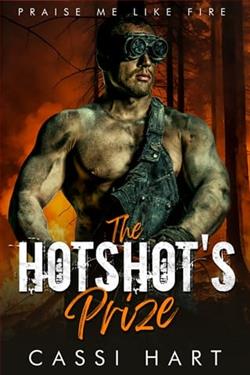Page 8 of Dirty Looks
“Oh,” I said. “Yep.”
“Hell.”
“Yep,” I said.
“My mother wrote him a strongly worded letter once,” Sheldon said. “She said she wasn’t about to let her hard-earned tax dollars be used for him to cut down trees and build ugly wind farms. She said he doesn’t have the sense that God gave a goose.”
“White people say the weirdest things,” Martinez said.
I didn’t know Councilman Lidle on a personal level. I tried to stay out of local politics unless Jack needed me to be at an event to eat rubber chicken and smile like I was happy about it. But I’d heard Jack mention Lidle’s name on plenty of occasions. Lidle was all for the big developments and bringing progress like wind farms to King George County. Unfortunately for Lidle, Jack and the Lawson family owned most of the land he wanted to see developed.
“Let’s check out the neighbors and see what they have to say,” Martinez said.
I’d never worked one-on-one with Martinez before, so I was curious what it was like to do the job with someone other than Jack.
“You’re the boss,” I said. “Lily and Sheldon can transport and unload our vic. But I’ll head back to the lab after we’re done here so we have a definite identification and can notify next of kin.”
“Maybe we’ll get lucky and her prints will be in the database,” Lily said. “More parents have started having their kids fingerprinted with the rise in trafficking over the last decade or so.”
“We can hope,” I said, and watched them walk away with precious cargo between them. They loaded her into the back of the Suburban and then slowly made their way back through the police barricades and press line.
My heart was heavy. I didn’t know what we were about to step into. Politics usually wreaked havoc with truth and justice. But I knew what my job was, and I knew that the little girl whose life had been so viciously taken was where my loyalty belonged. And though I liked Martinez and figured he’d be fun to work with, I missed Jack.
CHAPTER TWO
Thunder rumbled again,this time closer than it had been before, and I hitched my bag over my shoulder and walked with Martinez toward the police perimeter.
The park was a perfect square, and there were four houses on each side of the square that faced the park. We moved toward the four houses that were in a direct line of sight from our victim and I noticed the crowd of onlookers had gotten larger, despite the upcoming threat of rain.
It wasn’t hard to pick out Plank in the crowd since he was a good head taller than most of the onlookers. We caught his attention and he disentangled himself from the group of people he’d been interviewing to intercept us.
“How does he keep his uniform so straight and clean?” I asked as he walked toward us. “Even dodging bullets and wrestling suspects to the ground he always looks fresh.”
“He could be a model for the uniform company,” Martinez said. “A couple of guys at the station call him Baby Fresh. I’ve got twenty bucks in the office pool that says Plank is eventually going to snap and punch someone in the face for calling him that.”
“No way,” I said, shaking my head. “That kid is stone cold. I’ve never seen anything get under his skin. Last time a prisoner spit on him Plank offered to stop and pray with the guy.”
Martinez whispered out of the corner of his mouth, “Yeah, but I’m still holding out hope for the face punch.” Then he turned his attention to Plank and said, “Find out anything interesting from the crowd?”
“They all live in the neighborhood,” Plank said, his cheeks redder than normal because of the wind. “I got names and addresses for all of them. The only house that’s not represented is that little blue one on the corner.”
We all turned as one and looked at the neat blue house with white trim and barren front steps.
“No woman lives there,” I said.
“How’d you know?” Plank asked.
“Looks at all the other houses on the street,” I said. “The way these houses are built don’t lend themselves to a lot of curb appeal, so people set out their flowerpots and hanging baskets and put wreaths on the door because there are no porches. The blue house is nothing but concrete steps. So I figure a single guy has to live there.”
“Good call, Doc,” Plank said. “The neighbors said his name is Kent O’Leary. Quiet. Stays to himself. No one knows what he does for a living, but they said he must work weird hours because he’s in and out at odd times. He never comes to quarterly picnics the neighborhood puts on here in the park.”
“Let’s see if you can track him down,” Martinez said.
“Yes, sir,” Plank said. “I’ll run him as soon as I get back to the station.”
“What about the rest of the neighbors?” I asked. “Anything helpful?”
Plank sighed and relaxed his guard as he pulled out his phone so he could read his notes. “The least helpful group of old people I’ve ever met.”















